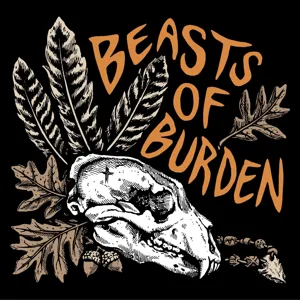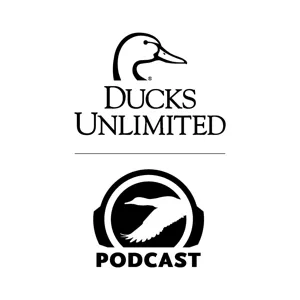In this episode, Teri MacArthur joins us to discuss invasive species, why the topic is important, why it matters to you, and what we can do about it. A great discussion recorded on 25 June 2021.
About Teri: Teri MacArthur serves The Woodlands Township as an Environmental Education Specialist in the Environmental Services Department. Her specialty is water conservation. She also acts as the departmentâs Volunteer Coordinator. She is currently recruiting volunteers to assist local Municipal Utility Districts operating in the Township with installations of storm drain markers to remind people not to put anything in the drains. Today sheâll be talking to me about bacteria problems in local waterways and the relation to the storm drain project.
Contact Teri about the Woodlands Township water conservation program, education programs, or volunteering:
a. 281-210-3928
b.
TMacArthur@thewoodlandstownship-tx.govContact Michael:
1. Email:
ccerppodcast@aol.com2. Education website:
https://www.goldams.com 3. Fitness website:
https://www.total-human-fitness.com4. LinkedIn:
https://www.linkedin.com/in/michael-gold-2883921/ And follow on:
1. Twitter/Instagram: EpistemeRx
2. Facebook Education:
https://www.facebook.com/Gold-Academy-120590094750981/3. Facebook Fitness:
https://www.facebook.com/Total-Human-Fitness-101721652234867/And listen also to the ReasonRX Podcast:
https://www.spreaker.com/show/the-reasonrx-podcastJoin us at CCERP on Facebook!
https://www.facebook.com/groups/ccerpAnd visit the CCERP website!
https://ccerp.orgShow notes (more to come):
1. Texas Invasive Species Institute at Sam Houston State University:
http://tsusinvasives.org/That is the new home of the Invaders of Texas program:
https://texasinvasives.org/2. The digital guide to area invasive species:
https://www.galvbayinvasives.org/3. Within The Woodlands Township, volunteers are helping to remove invasive species from public pathways and green spaces. You can help by joining the Invasives Task Force! Register to receive more information:
https://environmentalservicesdepartment.wufoo.com/forms/zeogsxk0l8ecrj/4,. Invasive species
Zabra mussel
kudzu
Hogs
Chinese Tallow
Elephant ear
Air potato vine
Japanese honeysuckle
Japanese climbing fern
Japanese privet
Apple snails
Emerald ash borers
Nutria
5. Non-native species
Earthworm
Honey bees
6. Native species
Agressives: Yaupon Holly, etc.
7. Ecosystems/ecology
Important to life
8. CCERP Episode 2: "2 UT Professor Jim Fordyce on Ecology and Its Importance"
https://www.spreaker.com/episode/200313959. Minnesota's Natural Heritage bby John R. Tester, Susan M. Galatowitsch, Rebecca A. Montgomery, John J. Moriarty
https://www.amazon.com/Minnesotas-Natural-Heritage-John-Tester/dp/1517903572/10. Lots of green not necessary good: top-down control
11, Plants â> oxygen â> gems
i. "Oxygen and Our Mineral World"
https://www.rockngem.com/oxygen-and-our-mineral-world/ii. "Minerals and Gems"
https://www.nationalgeographic.com/science/article/minerals-gems12. Monarchs
Milkweed
13. Woodpeckers, Pines, and Rat Snakes
i. "Red-cockaded Woodpeckers vs Rat Snakes: The Effectiveness of the Resin Barrier" by D. Craig Rudolph, Howard Kyle, and Richard Conner
https://sora.unm.edu/sites/default/files/journals/wilson/v102n01/p0014-p0022.pdfii. "Gray Rant Snakes Versus Red-cockaded Woodpeckers: Predator-Prey Adaptations" by Jerome Jackson
https://sora.unm.edu/sites/default/files/journals/auk/v091n02/p0342-p0347.pdf14. Chinese Tallow: quick-decomposing leaves, change soil acidity, exudates from roots
Allopathic
Trees need certain minerals
pH range matters
15. Farmacology: Total Health from the Ground Up by Daphne Miller M.D.
https://www.amazon.com/Farmacology-Total-Health-Ground-Up/dp/006210314816. Human-provided food not appropriate
Donât feed bread to ducks!
17. Some Owls found dead â they fly to find a place to live, but forests cut
18, Beauty berry
19. Yaupon Holly
20. Some put dollar value on ecological services (a few samples)
i. "The Economic Value of Ecological Services Provided by Insects"
https://bioone.org/journals/bioscience/volume-56/issue-4/0006-3568(2006)56%5b311%3aTEVOES%5d2.0.CO%3b2/The-Economic-Value-of-Ecological-Services-Provided-by-Insects/10.1641/0006-3568(2006)56[311:TEVOES]2.0.CO;2.full
ii. "Economic Value of Ecosystem Services from Agriculture"
https://lter.kbs.msu.edu/wp-content/uploads/2015/04/Swinton-et-al.-Ch-3-Economic-value-of-ecosystem-services-from-agriculture-KBS-long-term-ecological-research-LTER-site-volume-synthesis-book-2015.pdf?pdf=book-chapteriii. "Valuation of Ecosystem Services"
https://www.moore.org/materials/white-papers/Ecosystem-Services-Seminar-3-Valuation.pdf21. zoos
Species-appropriate
Human health
Space travel
gorillas
22. Change: elephants, beavers, prairie dogs, wolves
Good vs. bad
23. Biolphilia and E.O. Wilson
i.
https://www.psychologytoday.com/us/basics/biophiliaii.
https://www.biophiliafoundation.org/practice-biophilia/iii.
https://en.wikipedia.org/wiki/E._O._Wilsoniv.
https://eowilsonfoundation.org/e-o-wilson/24. Lady Bird Johnson
i.
http://www.ladybirdjohnson.orgii.
https://biodiversity.utexas.edu/resources/affiliated-collections/lady-bird-johnson-wildflower-center25. I-Tree
i.
https://www.itreetools.orgii.
https://www.fs.usda.gov/ccrc/tool/i-treeBio and picture courtesy Teri MacArthur








